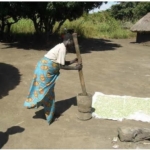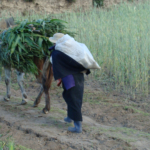


Volunteer Efforts for Development Concerns (VEDCO)
Facilitation for Innovations and Sustainable Productivity (FINASP), National Semi-Arid Research Resources Institute, (NaSARRI)
8/2018—8/2021
Ugandan smallholder farmers depend on rainfed agriculture, and rural food insecurity is widespread. An estimated 10.9 million Ugandans experience acute food insecurity, with 5 percent in crisis (OPM, 2017). In the Teso subregion of eastern Uganda, more than 10 percent of the population consume only one meal per day (IPC, 2017). Major drivers of low agricultural productivity and food insecurity include changing climate patterns, declining soil fertility, poor access to improved seeds, and ineffective extension systems. Agricultural research and development agencies are working to help address constraints, but their structures and strategies have inadequately supported smallholder farmers’ access to technologies that meet urgent needs and are suitable to diverse contexts. NARO Uganda has used participatory plant breeding with the aim of empowering farmers to influence research, but the system is constrained by low outreach and involvement of only a small subset of farmers in identifying research problems, generating options, and joint evaluation and selection of options for adoption.
The purpose of this project is to empower hundreds of farmers in eastern Uganda to test the adaptability and acceptability of agricultural research products on their own farms, starting with a broad range of NARO-developed, drought-tolerant sorghum and finger millet varieties that have good potential to help improve crop productivity in eastern Uganda. The farmer research network (FRN) approach will allow large numbers of farmers to gain exposure to options that respond to their interests and contexts. The project will embrace a social innovation process that encourages farmers to become the researchers who provide data to other farmers on the performance and characteristics of various options based on observations from their own farms. Additionally, the project aspires to help farmers create a sustainable local seed system to ensure a ready supply of preferred varieties emerging from the research. Implementing partners VEDCO, FINASP, and NaSARRI have been involved in previous successful McKnight Foundation projects (e.g., on enhancing the performance of sorghum and finger millet and on the postharvest handling of cereals) and have access to additional innovations aligned with the aims of the FRN.
Outputs:
Outcomes:


